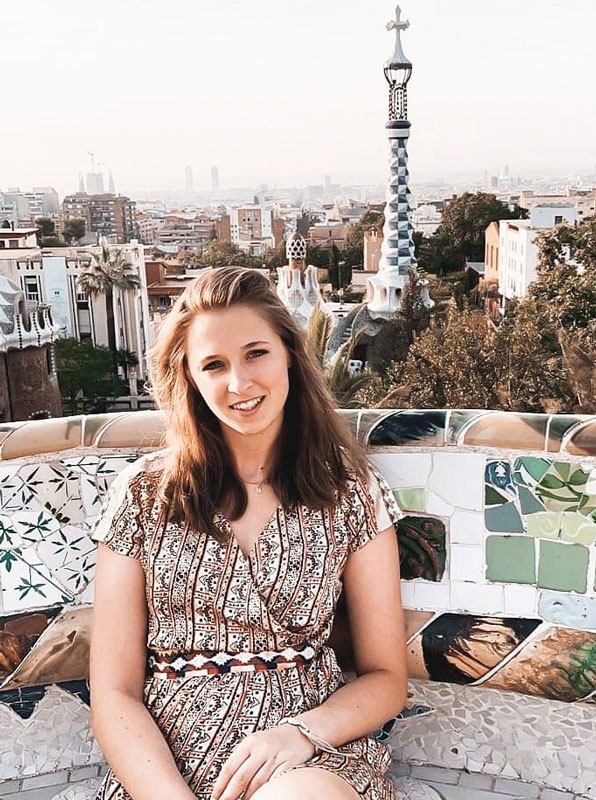The UNIC website uses cookies to improve your experience. Read our full Cookie Policy here.

Solving societal challenges of post-industrial cities, collaboratively
UNIC CityLabs are physical and virtual meeting points where students, citizens, academia and city stakeholders work together to identify and solve societal challenges faced by post-industrial superdiverse cities.
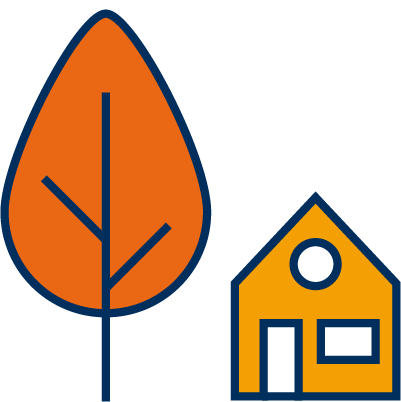
UNIC CityLabs brings science to the city and contributes to the resilience and renaissance of Europe’s post-industrial urban centres by examining challenges that are related to EU’s Urban Agenda. It discusses themes such as Climate adaptation, Culture and cultural heritage, Digital transition, Strategic planning and Housing, Inclusion of migrants and refugees in cities, & Jobs and skills in the local economy CityLabs are used to research and develop Post-Industrial cities with Engaged Research.
UNIC CityLabs gathers the expertise of students, academics, and citizens to tackle societal challenges following to the CityLabs method. The problem-solving process of CityLabs follows three main steps:

First the specific societal challenges, root causes and core problems of post-industrial cities are identified locally.

The identified societal challenges are solved at UNIC-wide co-creation events where heterogenous teams tackle the challenges collaboratively. Leveraging the diversity of the UNIC network widens perspectives, magnifies creativity, and boosts problem-solving and could even lead to finding solutions to wicked problems.
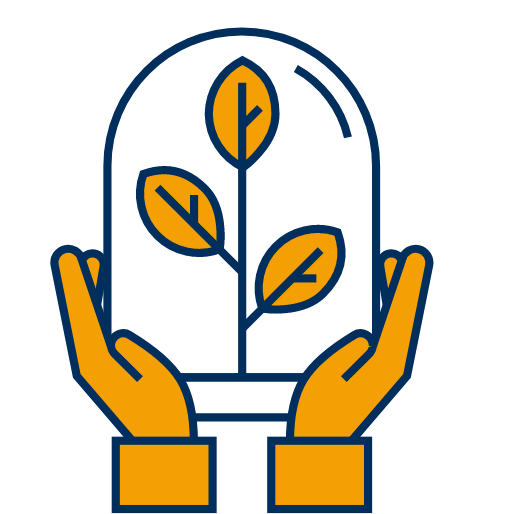
Ultimately, local experts and administrators offer support and guidance for materialising created solutions and connect creators with necessary people and resources. The aim of these local events is to help implement the most viable solutions locally and identify ways to overcome barriers for societal impact. The knowledge and practices produced in CityLabs are shared in the Open Case Repository.
Anyone interested is welcome to join UNIC CityLabs events and contribute to cases by providing insights, ideas, and solutions. Participation in a European network of students, academics, and citizens is a great way to learn to apply and create knowledge for societal impact. Find upcoming UNIC CityLabs events here:
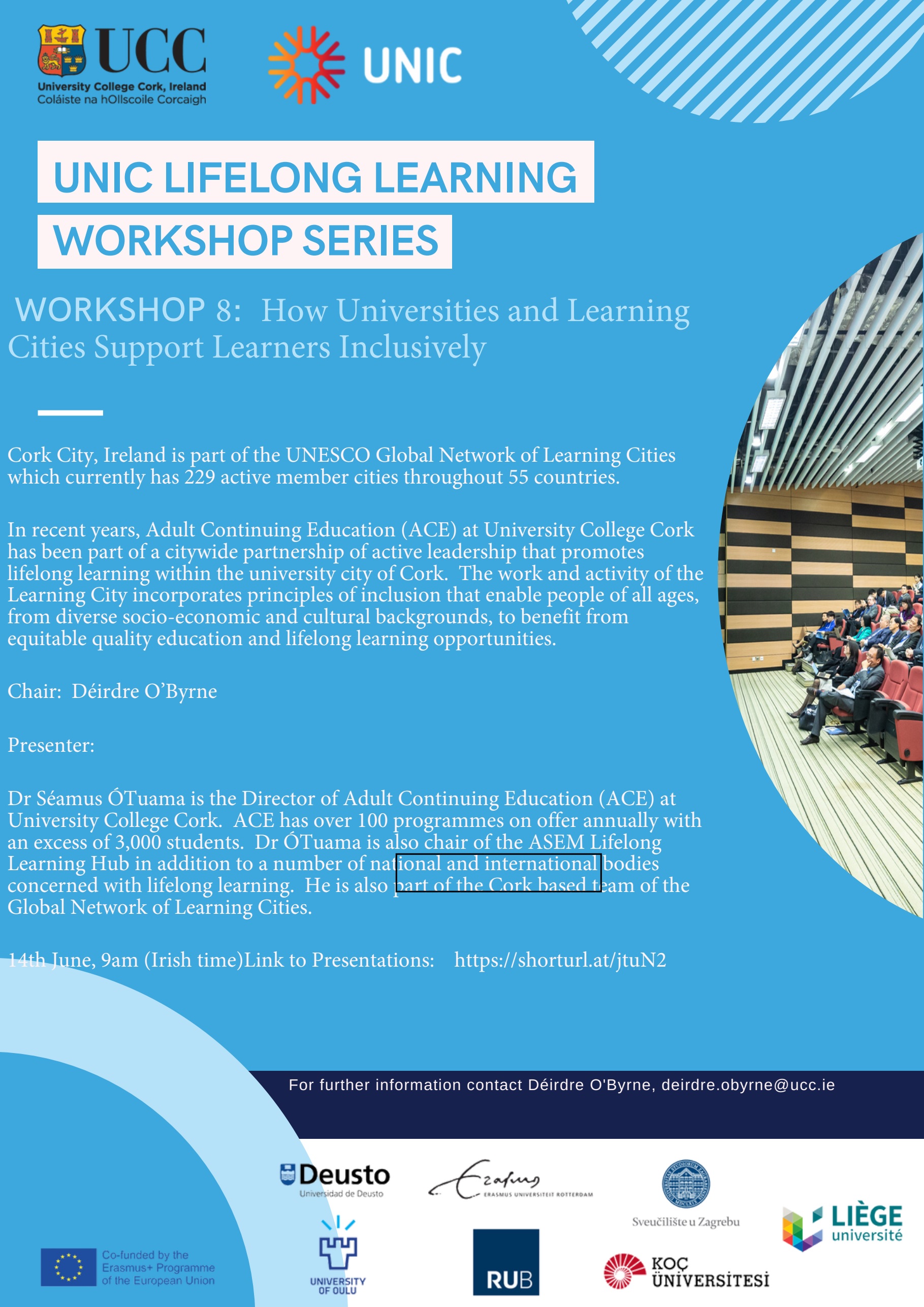
Lifelong Learning Workshop 8: How Universities and Learning Cities Sup...
The UNIC Lifelong Learning Workshop Series returns with with ACE at University College Cork, p...
14 Jun 2023 - 14 Jun 2023
Read more »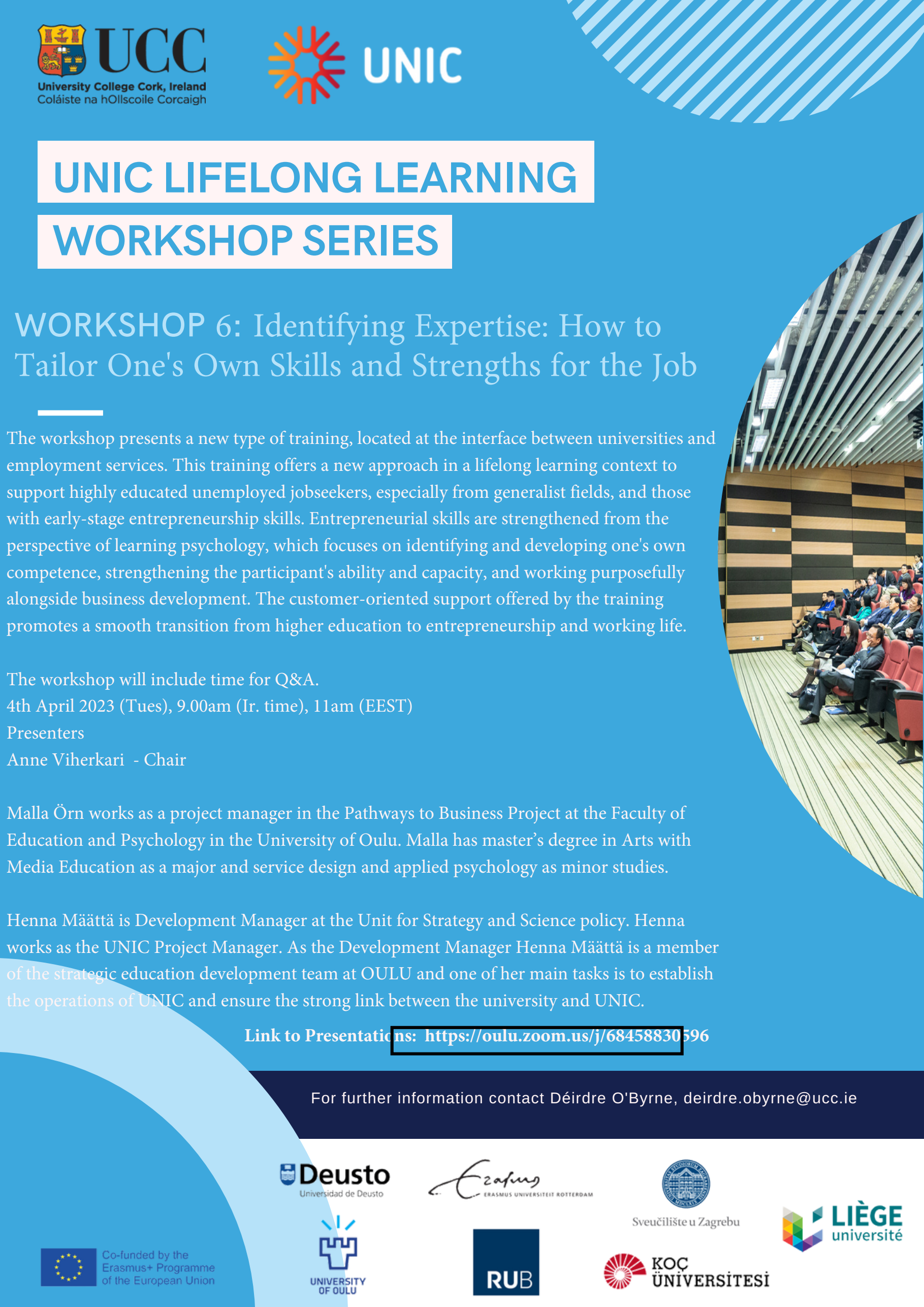
UNIC Lifelong Learning Workshop Series, Workshop 6 | Identifying Exper...
This workshop is aimed at Lifelong Learning professionals, in particular those working with hi...
04 Apr 2023 - 04 Apr 2023
Read more »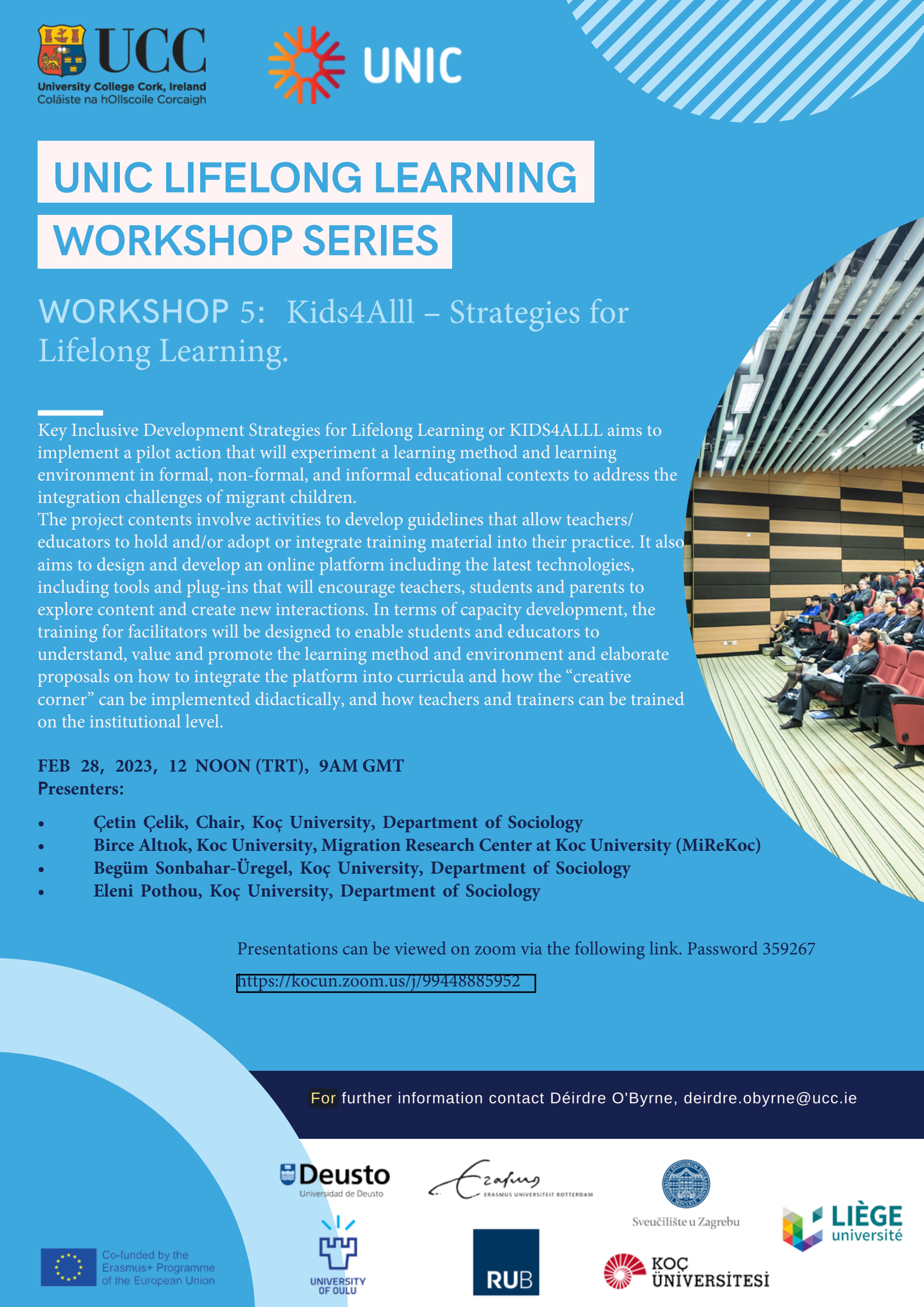
UNIC Lifelong Learning Workshop Series | Workshop 5: Kids4Alll – Stra...
Key Inclusive Development Strategies for Lifelong Learning or KIDS4ALLL aims to implement a pi...
28 Feb 2023 - 28 Feb 2023
Read more »UNIC CityLabs welcomes you to research and develop your city. As a researcher and organization, you can provide cases to be investigated at UNIC CityLabs. You can find examples of CityLabs cases in the UNIC Open Case Repository:
UNIC Lightning Bites: Green cities, Healthy lives
What is the connection between Green Cities and Healthy Lives? UNIC Lightning Bites aims to di...
26 Nov
Read more »UNIC Roundtable: European vision for One Health implementation
The online UNIC roundtable was aimed at the members of UNIC's Thematic Line 6 "Health and Well...
22 Apr
Read more »UNIC Lightning Bites - The role of mother language in shaping identity...
Two students from the Turkish Student Association ''Mozaik'' in Rotterdam will give a session ...
21 Feb
Read more »We contribute to the urban resilience and renaissance of post-industrial cities.
CONTACT YOUR LOCAL CITYLABS COORDINATOR:

UNIC broadened my worldview by creating a unique environment to collaborate and learn from people of different backgrounds and perspectives. Diversity is redefined as the cornerstone of progress in the UNIC University.

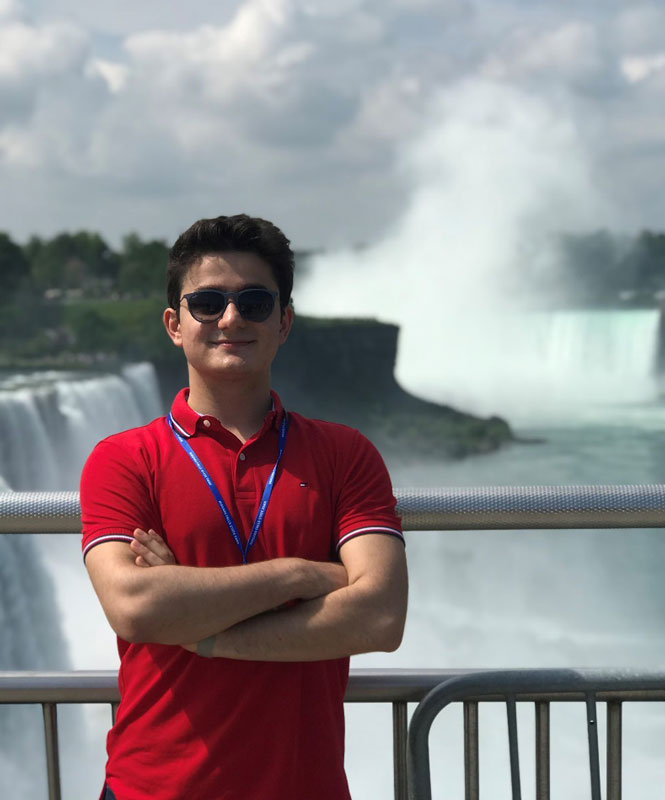

UNIC is a big improvement for our European society. It gives current students the opportunity to leave a better future behind for future generations.

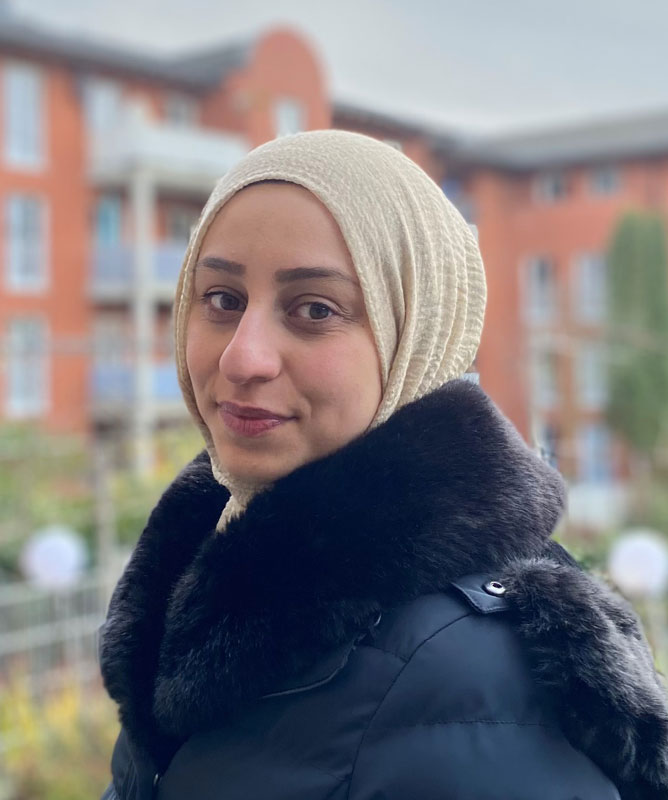

UNIC University brings people together through diversity and inclusive education

